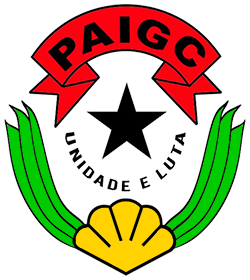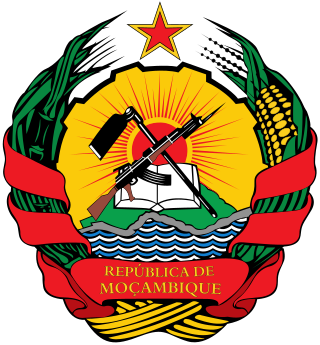 |
|---|
Elections to a Legislative Assembly were held for the first and only time in Portuguese Cape Verde in March 1973.
 |
|---|
Elections to a Legislative Assembly were held for the first and only time in Portuguese Cape Verde in March 1973.
On 2 May 1972 the Portuguese National Assembly passed the Organic Law for the Overseas Territories, which provided for greater autonomy for overseas territories. [1] Cape Verde was to have a 21-member Legislative Assembly. [1]
Candidates were required to be Portuguese citizens who had lived in Cape Verde for more than three years and be able to read and write Portuguese. Voters were required to be literate. [1] As the Portuguese constitution banned political parties at the time, the majority of candidates were put forward by the ruling People's National Action movement, although some civic associations were allowed to nominate candidates. [1]
Out of a total population of 272,071, only 25,521 people registered to vote. A total of 20,942 people voted, giving a voter turnout of 82.1%. [1]

Politics of Cape Verde takes place in a framework of a semi-presidential representative democratic republic, whereby the Prime Minister of Cape Verde is the head of government and the President of the Republic of Cape Verde is the head of state, and of a multi-party system. Executive power is exercised by the president and the government. Legislative power is vested in both the government and the National Assembly. The judiciary is independent of the executive and the legislature. The constitution, first approved in 1980 and substantially revised in 1992, forms the basis of government organization. It declares that the government is the "organ that defines, leads, and executes the general internal and external policy of the country" and is responsible to the National Assembly.

The recorded history of Cape Verde begins with the Portuguese discovery of the island in 1458. Possible early references to Cape Verde date back at least 2,000 years.
Electoral systems of the Australian states and territories are broadly similar to the electoral system used in federal elections in Australia.
Several politico-constitutional arrangements use reserved political positions, especially when endeavoring to ensure the rights of women, minorities or other segments of society, or preserving a political balance of power. These arrangements can distort the democratic principle of one person - one vote in order to address special circumstances.

The African Party for the Independence of Guinea and Cape Verde is a political party in Guinea-Bissau. Originally formed to peacefully campaign for independence from Portugal, the party turned to armed conflict in the 1960s and was one of the belligerents in the Guinea-Bissau War of Independence. Towards the end of the war, the party established a socialist one-party state, which remained intact until multi-party democracy was introduced in the early 1990s. Although the party won the first multi-party elections in 1994, it was removed from power in the 1999–2000 elections. However, it returned to office after winning parliamentary elections in 2004 and presidential elections in 2005, since which it has remained the largest party in the National People's Assembly.

France is a unitary semi-presidential republic with a bicameral legislature. Public officials in the legislative and executive branches are either elected by the citizens or appointed by elected officials. Referendums may also be called to consult the French citizenry directly on a particular question, especially one which concerns amendment to the Constitution.

Elections in Angola take place within the framework of a multi-party democracy. The National Assembly is directly elected by voters, while the leader of the party or coalition with the most seats in the National Assembly automatically becomes President.

Elections in Portugal are free, fair, and regularly held, in accordance with election law.

Elections in Guinea-Bissau take place within the framework of a multi-party democracy and a semi-presidential system. Both the President and the National People's Assembly are directly elected by voters.
India has a parliamentary system as defined by its constitution, with power distributed between the central government and the states.

The National Assembly is the unicameral legislative body of the Republic of Cabo Verde.

The 1st Legislative Yuan election was held in China between 21 and 23 January 1948. This election, and the preceding 1947 National Assembly election are the first elections of under the newly ratified 1947 Constitution of the Republic of China. Under this constitution, the Legislative Yuan is a standing legislature when the National Assembly is not in session. At the time most of Chinese territory was under the control of the government of the Republic of China, using a direct voting system elected 759 Legislative Representatives. Using the Republic's then 461 million population to calculate, on average 600,000 people elected one representative in the Legislative Yuan. The election along with the one held for the National Assembly also made China the largest democracy at the time.

Parliamentary elections were held in Portugal on 28 October 1973. After the only opposition party withdrew from the election, the People's National Action (ANP) was the only list to contest the election, winning all 150 seats. The 1973 election would be the last held under the Estado Novo. Five months later, the Carnation Revolution would bring down the regime. In 1975, the Constituent Assembly of Portugal was elected in the first democratic elections since 1925.

Elections to the Legislative Assembly were held for the first and only time in Portuguese Guinea in March 1973.

Elections to a Legislative Assembly were held for the first and only time in Portuguese Mozambique in March 1973.

Elections to a Legislative Assembly were held for the first and only time in Portuguese Angola between 19 and 27 March 1973.

Elections to a Legislative Assembly were held for the first and only time in Portuguese São Tomé and Príncipe in March 1973.

Elections to a Legislative Assembly were held for the first and only time in Portuguese Timor in March 1973.
Elections to a Legislative Assembly were held in Macau in March 1973.
The following lists events that happened during 1973 in Cape Verde.